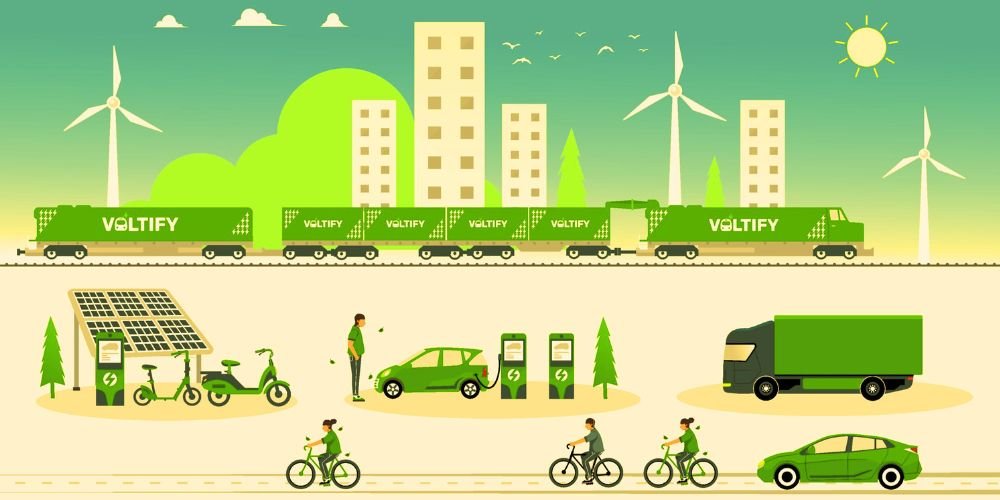Sustainable communities have emerged as a beacon of hope in an age marked by environmental challenges and urbanization. As cities expand and resources become scarcer, the imperative to create livable, eco-friendly, and socially inclusive spaces has gained prominence. This article delves into sustainable communities, uncovering their significance, strategies, and the potential to reshape our urban landscape.
The Blueprint for Tomorrow’s Cities
It promotes harmony between people, the environment, and the economy. Through innovative planning and technologies, these communities prioritize energy efficiency, waste reduction, green spaces, and social well-being.
Urban Planning: Crafting Livable Spaces
Sustainable communities start with thoughtful urban planning. Compact and mixed-use developments, efficient public transportation systems, and pedestrian-friendly layouts reduce the need for cars and foster a sense of belonging and connectivity among residents.
Smart Infrastructure: The Foundation of Sustainability
Intelligent infrastructure, including energy-efficient buildings, smart grids, and integrated water management systems, form the backbone of sustainable communities. These technologies optimize resource use, minimize waste, and create resilient urban environments.
The Impact of Sustainable Communities
Sustainable communities go beyond architectural design—they foster healthier lifestyles, boost local economies, and combat climate change on a community-wide scale.
Healthy Living and Well-being: Thriving Together
It prioritizes the well-being of residents. Ample green spaces, walkable neighborhoods, and access to fresh food contribute to active lifestyles, reduced stress levels, and improved mental health, fostering a higher quality of life for all.
Economic Prosperity: The Power of Local Economies
It creates economic opportunities. Local businesses thrive in vibrant neighborhoods, creating jobs and supporting entrepreneurship. Additionally, investments in renewable energy and energy-efficient technologies generate economic growth while reducing environmental impact.
Challenges and Innovations
While sustainable communities offer many benefits, they also face challenges that require innovative solutions, collaboration, and adaptable strategies.
Equity and Inclusivity: Fostering Diversity
Ensuring that sustainable communities benefit all residents requires addressing issues of affordability and inclusivity. Affordable housing initiatives, community engagement, and policies prioritizing social equity are crucial in ensuring everyone has access to the benefits of sustainable living.
Long-Term Planning and Collaboration: A Collective Effort
Developing sustainable communities demands long-term vision and cooperation among stakeholders. Collaboration between government bodies, urban planners, architects, and residents is essential to ensure that the community’s goals are met and that the built environment remains adaptable to evolving needs.
Trends Shaping Urban Evolution
The trajectory of sustainable communities leads to trends that promise to reshape urban landscapes, redefine real estate development, and amplify global efforts to create more livable and resilient cities.
Regenerative Design: Building Beyond Sustainability
A growing trend within sustainable communities is regenerative design. This approach aims to restore ecosystems and enhance the environment through development. From green roofs to rainwater harvesting, regenerative design strategies give back to the Earth and promote a harmonious coexistence with nature.
Net-Zero Communities: A Step Toward Carbon Neutrality
Net-zero energy communities are gaining traction. These communities produce as much renewable energy as they consume, significantly reducing their carbon footprint. Using energy-efficient buildings and renewable energy sources, net-zero communities pave the way for a carbon-neutral urban future.
Conclusion
Sustainable communities aren’t just a concept but a blueprint for harmonious urban living. By prioritizing ecological balance, social equity, and economic prosperity, we embark on a journey that redefines how cities are built and experienced. While challenges involving inclusivity and long-term planning persist, the path forward is illuminated by innovation, collaboration, and a shared commitment to designing spaces that prioritize people and the planet.
The future of sustainable communities holds the promise of cityscapes, where green rooftops, bustling local economies, and thriving communities define our legacy. This odyssey invites us to embrace an era where urban utopias are no longer a dream but a reality we create.





